Humidifiers are handy appliances to bring the moisture back into the indoor air. Read on to get answers to the following questions:
- What does a humidifier do?
- What types of humidifiers are there?
- What are the benefits of a humidifier?
Besides the health benefits, the article also talks about other advantages households with humidifiers have. Let’s dive in to learn more.
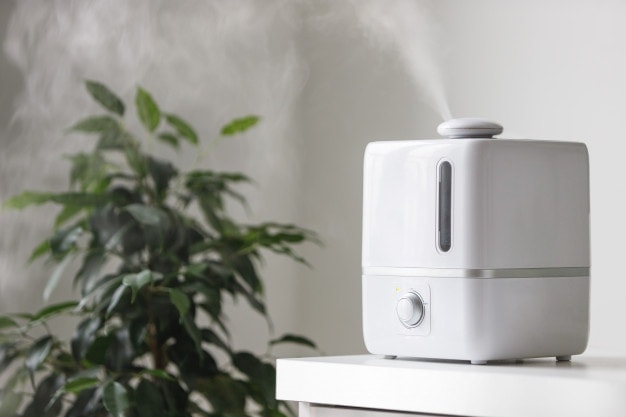
How Do Humidifiers Work?
Humidifiers emit water particles into the air. A few varieties of this product include cool mist, warm mist, and ultrasonic. The primary role of a humidifier is to soften the indoor air quality. Thus, they are more popular in dryer climates or during colder months.
Warm mist humidifiers boil the water and push the particles through a wick filter. Cool mist humidifiers either skip the boiling part or cool the vapor before emitting it into the air. Different product variations use a unique technology to get water molecules out into the surroundings.
Humidifier Benefits
Why use a humidifier? If you follow our website, you might already know that the ideal moisture percentage indoors is somewhere between 40 and 60%. Winter months are when heating systems dry out the air inside the house and cause problems like dry skin, coughs, snoring, and even cracks in wooden furniture. Humidifiers help avoid these problems. This section outlines a few humidifier benefits to help you decide if you need to own one.
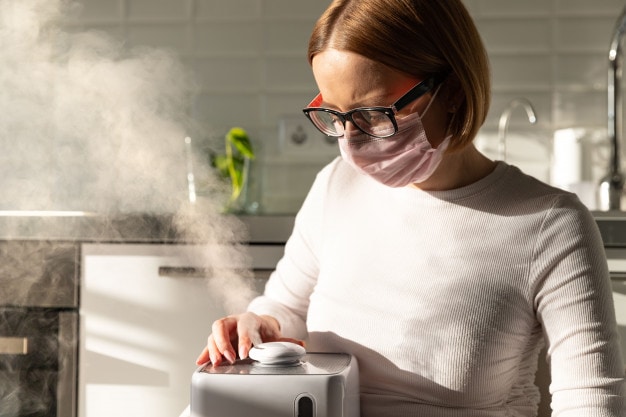
Reducing Snoring and Respiratory Problems
Breathing issues are a known problem during the winter months. Studies show that infectious diseases like influenza are less likely to spread if the air humidity is higher than 40%. Dry air can also cause coughing and snoring.
Therefore, if your respiratory system is lubricated enough, you are less likely to snore. Plus, coughing will be more productive and less damaging to your throat.
Keeping Your Body Hydrated
Winter is when you start feeling your skin and hair dry out because of dehydration and air quality indoors, where you spend most of the time.
Skin is our largest organ, making it a considerable surface that works to get moisture into your body. You can replenish your body’s water reserves by drinking more liquid. However, air with low water consistency makes your skin more prone to dryness. Humidifiers can help your body get more hydration apart from drinking water.
Keeping House Plants Healthy
Much like our bodies, house plants also need surrounding humidity to grow healthy. They are a natural part of your house’s air quality. Still, you need to look after them if you want them to purify and improve your home’s microclimate. Besides watering them regularly, owning a humidifier can help house plants get enough water from the surroundings.
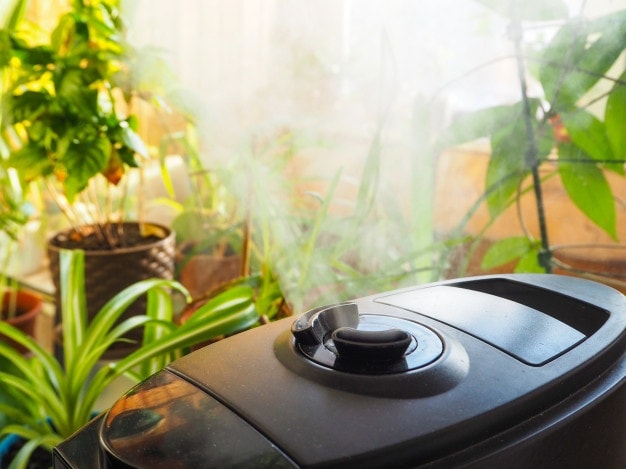
Overall Warmth During Winter Months
It’s worth mentioning that humid air seems warmer, as it’s more concentrated, which keeps the sweat from evaporating. When sweat fails to escape your body, the temperature rises. Thus, you might end up reducing your electricity bill due to buying a humidifier. This calculator might help you check the cost.
Extend the Life of Your Furniture and Flooring
Consistent humidity levels in your house directly influence how long your wooden furniture and flooring will serve you. Too little or too much humidity will spoil them.
Keeping the air around 40 to 50% moist not only helps you avoid cracks and splits in your flooring and furniture but also prolongs their service years. However, remember that too much water can cause rotting and mold.
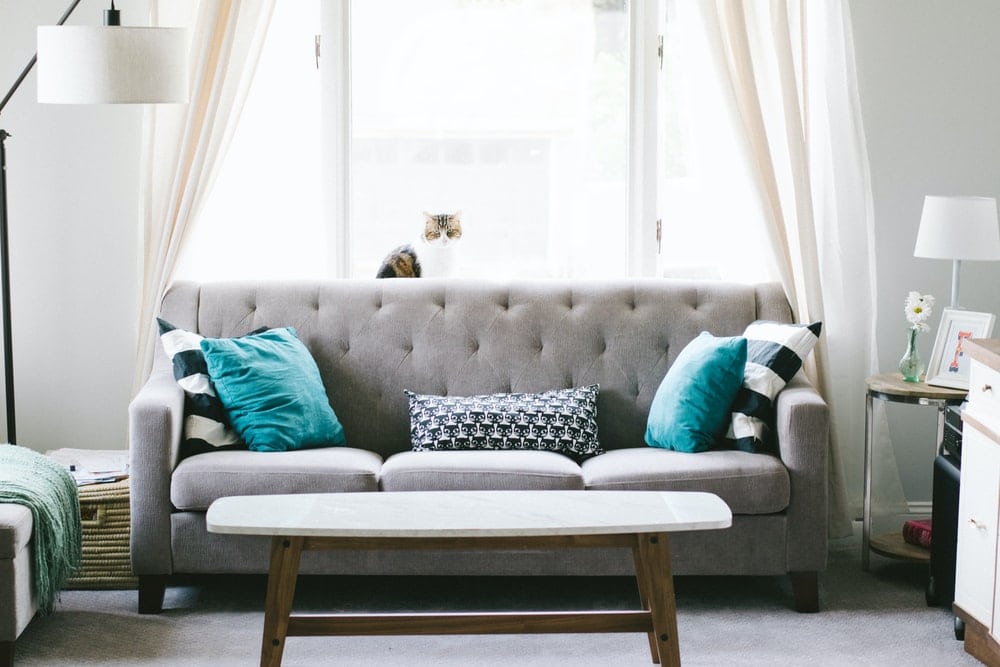
What Does a Humidifier Do for Babies?
All the humidifier benefits mentioned above double for your child. An adult’s skin and respiratory system are more adapted to the surroundings. However, a baby’s body is still adjusting to the outside world. The skin is thinner and more sensitive, and they sleep longer. Keeping consistent humidity in a child’s room can rid your child of problems like dry skin, nasal congestion, coughing, and snoring.
The best humidifier for a nursery is the cool mist variation. It doesn’t get too hot so you can avoid accidental burns. You might want to consider the following factors before buying one for your child’s room:
- Find a model with an automatic shut off
- Check how much sound it makes
- Look for a humidifier with directional flow
- Decide on the best size for the nursery
Once you have all the variables figured, you can choose a model from the suggested ones.
What Does a Humidifier Do for a Cough?
There are a couple of ways a humidifier can help with a cough, whether from a cold or allergies.
Keep Out the Irritants

A humidifier can help congestion during sickness. If your nose is dry, it’s more likely to miss the dust particles in the air, making you cough. If the air is humid enough, the small hairs in your nose (cilia) will do their job more efficiently.
Soften the Cough
Coughing is less painful with a moist throat. Humid air stimulates mucus formation and softens it, while each dry cough causes more irritation in the throat. Hence, humidifiers alleviate respiratory problems and help combat symptoms, especially at night.
What Does a Humidifier Do for Allergies?
Air quality is one of the most significant reasons for seasonal allergies. Pollen, mold, or dust particles are the top causes of breathing problems. Improving the humidity in your house might aid in keeping respiratory problems at bay or softening their impact.
Maintains the Lubrication of the Nose and Throat
Less than 40% humidity can cause your nose and throat to dry out, losing the layers of mucus and paving the way for allergies to appear. Moreover, sneezing might damage the cracked and dried skin inside the cavities. Hydrated air helps add comfort to your breathing.
Reduces the Number of Pathogens in the Air
Water molecules in the moderately humid air tend to bond with the harmful particles, which reduces the risk of them triggering allergies.
What Does a Cool Mist Humidifier Do?
Cool mist humidifiers use an ultrasonic metal diaphragm that vibrates and emits small cool particles of water into the air. It doesn’t boil the water but instead gets small separate droplets to disperse.
Another cool mist humidifier variety is the evaporative one. The gadget draws dry air through the filter into the tank, and the water there starts to evaporate. The humid air is cooled down and blown back into the room.
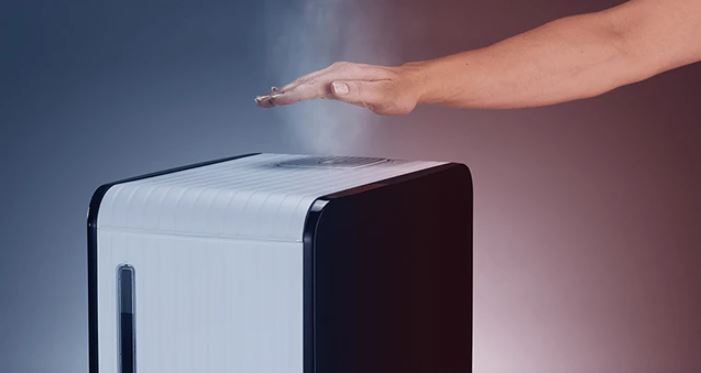
What Does a Warm Mist Humidifier Do?
Most warm mist humidifiers boil the water and push the vapor particles into the air.
This variety is healthier because boiling water kills bacteria before the mist goes out into the air. However, there’s a danger of burns and spillage, so they are a risky alternative if you have kids and pets. Plus, waiting for it to cool down before you can clean it can take a lot of time.
Conclusion
Humidifiers have many benefits. They can soothe breathing problems, improve your overall well-being, and make the house microclimate softer. No matter your preference, the appliance will help you bring the humidity in your home to the desired norm, raising your life quality to a new level.
People Also Ask
Below are a few more questions regarding humidifier functions and if they are essential for every house.
Not everybody needs a humidifier. However, most households in dry climates do. You can measure the air humidity inside your house with a gadget. If it’s close to 40 to 60% as mentioned above, you might not need the appliance. Homes with humidity lower than 40% would need a humidifier. Another gadget, a dehumidifier, would be essential for moisture above 60%.
As a general rule of thumb, most humidifiers don’t clean the air; they provide moisture. However, air washers use technology that draws air into the gadget, removes dust and pollen, and returns cool, clean mist to the surroundings. If you need to freshen the air in your house, go for something like this or buy a dedicated air purifier.
On the contrary, experiments show that humidifiers benefit respiratory conditions. They can help you with cold symptoms, such as dry throat, sneezing, and coughs. It’s easier to breathe when the air is humid.
Dirty humidifiers can cause lung and sinus infections and respiratory diseases. If you own one, you need to follow a regular cleaning schedule to prevent bacteria and mold from developing inside of the gadget.
